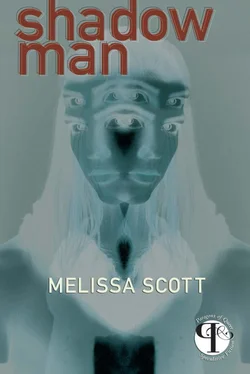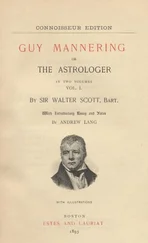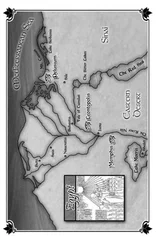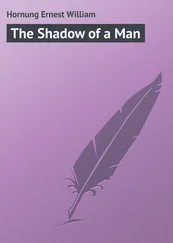Warreven reached for the wine himself. The Stiller contract with Kerendach had been a matter of debate for nearly seven local years. Previous seraalistes had proposed changing both it and the brokers, but had never been able to come up with an acceptable alternative, though the margin of the Traditionalists’ victories had been getting smaller and smaller. The more radical Modernists—and the conservative Traditionalists, like the Red Watch Feranes—swore that the largest pharmaceuticals were in collusion, had banded together to make sure that each of them got its share of the twice-yearly harvests at a bargain price. Warreven himself doubted that: the way the Big Six, and the Lesser Twenty, for that matter, bickered over labor and the special individual contracts for the harvest surpluses, made him fairly confident that they wouldn’t be able to work together on anything bigger. It was more likely—if Bonand was right—that Temelathe had quietly passed the word, through the Stanes in the Licensing Office and in Trade Service and Export Control, that the Most Important Man would frown on a new contract with Stiller. “Are you with a pharmaceutical?” he said, to Alex, meaning, or are you just trade?
The off-worlders blinked. “Well, yeah. Not Kerendach, though.”
“Good,” Folhare said, with a smile, and poured him a glass of wine.
“He’s with DTS,” Bonand said impatiently, and Alex flicked a glance at him.
“That’s right.”
Warreven nodded. DTS was one of the thirty-odd midsize companies that did business on Hara, specializing in the sea-harvest from Casnot and Newcomen—not a big company at all, not even one of the Lesser Twenty—but large enough to afford to pay Stiller’s prices. And small enough, specialized enough, he thought, to be less dependent on the Stane and Maychilder harvests than the larger companies. Always assuming, of course, that he ended up with the job. “Do you find yourself dealing much with Temelathe and Stane?” he asked, and Alex gave him a wary look.
“Not much, really.”
“Some,” Bonand said in the same moment, and the off-worlder sighed.
“DTS pays its—fees—like everybody does. What do you want me to say, that I think it sucks? I’m not in marketing, I’m a tech. I’m just passing through.”
Bonand lifted his eyebrows, caught between annoyance and not wanting to alienate his date, and Warreven said, “Sorry, I wasn’t being clear—or meaning to insult you. It’s more … I was curious, really. I know the Big Six have to be careful of Stane—they get most of their goods from them, right?—but I didn’t know if that was true for companies your size.”
Alex looked away. Even in the dim light, Warreven could see that he was blushing. “I’m—just a technician,” he said again, and Warreven felt himself blushing in turn. Alex was trade, a player, though maybe not by the off-worlder’s own definition. If he was a technician, of course he wouldn’t know DTS’s real policies.
“Would you like to dance?”
Alex blinked again and glanced toward the dance floor. “Sorry. I’ve no idea how to dance to this.”
“It’s not that hard,” Warreven began, and Bonand pushed back his chair.
“I’ll dance with you, Warreven. Keep you honest.”
There was no graceful way to refuse. Warreven followed him onto the worn floor, took their place in the nearer of the lines, linking arms with Bonand and a thin woman who took the place to his left. The drums were already well into the entrait , the twisting rhythm signaling a cross-step dance, and Warreven sighed. He was not a terribly good dancer, for all that he enjoyed it; he would have preferred not to screw up the complicated patterns in front of Bonand, or Alex. The lead drum sounded, and the line moved forward into the first figure in ragged unison, the stuttering, high-pitched contre calling the changes. Warreven kept his head down, concentrating on the steps, until he was sure he had settled into the pattern of the movements. The woman at his left dropped his arm and began adding the dipping spins of an expert; he spared her an admiring glance, but knew better than to try to imitate her.
At least Bonand was no better: at the first tempo change, he shook his head, and dropped back out of the line, pulling Warreven with him. Warreven went willingly enough; they stood with the others who had given up on the change, watching as the triple line swept the length of the hall and retreated again. The woman who had been next to him was very good, Warreven saw, and he watched her with remote envy. She was at the center of her line now, thin face a mask of concentration, her skirt flying out in an almost constant circle as she added spin on spin and still kept her place with the others. The tempo changed again, slowed abruptly, and most of the dancers slowed with it, glad of the break, gliding through the basic pattern at half their previous speed. The woman kept spinning, riding the quicker beat implicit in the lead drum’s call. And then the counterpoint came in again, faster still, and she flung back her head and matched it step for step.
“She is good,” Warreven said, to no one in particular, and Bonand looked at him.
“Yes. Do me a favor, Raven, leave Alex alone.”
“I’m not serious,” Warreven answered. “And if he is, that’s not my problem.”
“It’s not that,” Bonand said. “He’s gay, Warreven.”
“So?” Warreven began, and only then did the foreign word, the Creole word, register. “What do you mean, exactly? He’s trade.”
Intense distaste and a deepening anger flickered across Bonand’s face, and then he had himself under control again. “Yeah, he’s trade, but he does work for DTS—he really is a tech, he hasn’t just bought a permit—and he’s still gay. Off-world gay—that means he wants another man, not a halving like you.”
Warreven felt a familiar fury rising in him, at the name, at the exclusion, at the whole incomprehensible system of off-world sexuality, with its finicking distinctions that were no distinctions a tall as far as he himself could see. “He’s still trade,” he began, and the drums stopped, silencing him. He clapped automatically with the rest of the crowd, biting hard on the rest of what he would have said— he’s still trade, and what trade wants, what they come here for, is sex with us outside that system, so I’ve as good a chance with him as you do —and Bonand looked aside, sorrow chasing hope across his mobile features.
“I suppose he’s trade,” he said softly, voice barely audible in the sudden rush of conversation. “I know he’s trade. But he is gay, and he does really work for DTS—he’s different, Raven.”
Warreven looked at him again, the situation rearranging itself into a new pattern in his mind. Alex might not be trade after all, might just be one of the temps who came through the system and decided to try Hara’s well-known delights, but Alex wasn’t what mattered. Bonand was in love with him, or had convinced himself he was in love with him, and Warreven didn’t need the rest of that dream spelled out for him. He’d felt it himself a few times, the heady combination of sex and desire and something like friendship that he’d allowed to grow into the hope that maybe this one off-worlder would fall in love with him and take him with him when he left Hara. It had never happened to him, almost never happened to any Harans; IDCA almost never gave emigration permits to even part-time prostitutes. He remembered the case waiting on his desk: if Destany Casnot couldn’t get a permit without a fight—Destany who had half a dozen friends willing to swear he, 3e, had been out of trade and ’Aukai’s lover for seven years, there was no chance that Bonand would get one. And even less chance that Alex would make the effort for him. “He’s your—” he began, and broke off because franca didn’t have an inoffensive word for what Alex was to Bonand, “—yours. I wasn’t poaching, not seriously. I’ll leave him alone.”
Читать дальше












